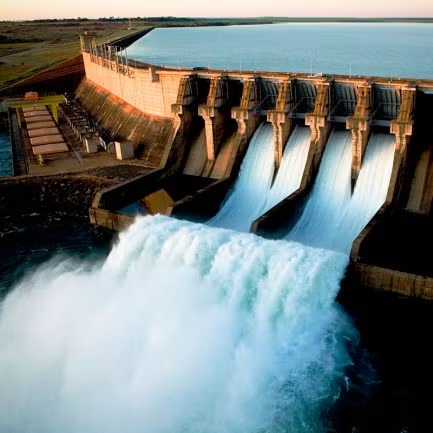
Currently, hydropower generates 27% of the nation’s utility-scale renewable electricity and 6% of total utility-scale electricity. Researchers noted that changing climate conditions, including altered precipitation patterns and earlier snowmelt, could impact water availability and movement in watersheds, which affects hydro production.
The study, published in Environmental Research Letters, predicts that hydropower generation may rise by 5% by 2039 and 10% by 2059 due to changing weather patterns and water flows. However, the impacts will vary. Some regions may face significant challenges, such as reduced water levels caused by increased drought risk.
Findings highlight regional and seasonal variability
The research shows hydropower impacts will differ across regions and seasons. For example:
In the West, earlier snowmelt could increase water availability in late winter and spring but reduce hydropower generation during summer and fall.
In the East, heavier rainfall could lead to increased hydropower generation in the fall.
Seasonal forecasts predict increased generation in the North and decreased generation in the South.
The study also noted greater uncertainty in hydropower generation for California, the Southwest, and the Southeast compared to the Pacific Northwest, Northeast, Mid-Atlantic, and Midwest. Factors contributing to this uncertainty include changes in snowpack and precipitation events such as winter atmospheric rivers in California and the North American Monsoon in the Southwest.
Focus on future hydropower planning
The study underscores the importance of monitoring seasonal water patterns to meet energy and water demands. The research team plans to continue building datasets to help utilities and power system operators design drought scenarios, evaluate infrastructure upgrades, and develop long-duration storage systems.
A fourth assessment of the effects of climate change on federal hydropower facilities, mandated under the SECURE Water Act of 2009, is also underway.